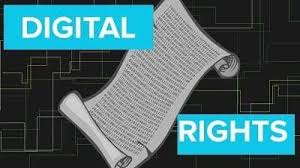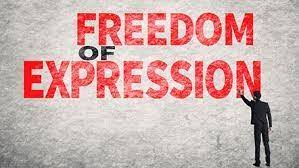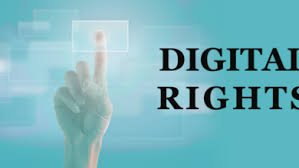


Introduction
The digital revolution has significantly transformed Nigeria, ushering in unprecedented access to information and new platforms for expression. As the internet becomes integral to daily life, digital rights and freedom of expression online have emerged as critical issues. This article explores the current landscape, challenges, and future of digital rights and freedom of expression online in Nigeria, emphasizing their importance for democracy and social development.
The conversation surrounding digital rights and freedom of expression online in Nigeria has become increasingly critical as digital technologies continue to shape the way Nigerians communicate, organize, and engage in democratic discourse. In an era defined by instant connectivity, the internet serves not only as a tool for economic empowerment and innovation but also as a vital space for political activism, social commentary, and journalistic freedom. However, this rapidly evolving digital landscape also poses significant challenges, especially when state surveillance, censorship, and ambiguous regulatory frameworks threaten to erode civil liberties.
Nigeria, Africa’s most populous country with over 220 million citizens, has seen exponential growth in internet penetration. From online activism during the #EndSARS protests to the virality of youth-driven digital entrepreneurship, Nigerians are asserting their voices online more than ever. Yet, this digital empowerment is accompanied by a growing concern about state repression and the arbitrary application of laws that stifle free speech. The legal architecture governing online expression remains both vague and expansive, often giving authorities broad discretionary powers to curtail speech deemed offensive or threatening to national security.
The Cybercrimes (Prohibition, Prevention, etc.) Act, 2015 is one of the most cited legislations when discussing online freedom in Nigeria. While the Act ostensibly seeks to curb cybercrime, it has been criticized for being used as a tool to suppress dissent. Several journalists, bloggers, and ordinary citizens have faced arrests, harassment, and legal action under its provisions. For instance, Section 24 of the Act criminalizes “cyberstalking,” but its wording is so broad that it can be interpreted to include any digital expression that is merely annoying or offensive to powerful individuals or institutions. This vagueness has made it a go-to instrument for silencing critics of government actions or policies.
Equally troubling is the Nigerian government’s increasing inclination to control digital spaces through executive actions and legislative proposals. The infamous Protection from Internet Falsehood and Manipulations Bill, also known as the “Social Media Bill,” although not passed into law, reflects this trend. Critics argue that such legislation is a veiled attempt to muzzle free speech and limit the ability of citizens to hold their leaders accountable. Similarly, the Hate Speech Bill, which proposes capital punishment for hate speech resulting in death, has drawn widespread condemnation for its draconian implications.
Additionally, Nigeria has seen episodes of internet shutdowns and attempts to restrict access to major platforms. The most notable case was the Twitter ban in June 2021 following the platform’s deletion of a tweet by the President. The government justified the ban by citing national security concerns and the need to prevent misinformation, but civil society and human rights organizations saw it as a gross violation of digital rights. The ban lasted for over seven months, costing the economy millions and silencing millions of voices. This act alone highlighted the fragile nature of digital freedom in the country and the risks posed by unchecked executive powers.
The Nigerian Constitution, under Section 39, guarantees the right to freedom of expression, including the right to impart ideas and information without interference. However, the practical realization of this right in digital spaces is constrained by a confluence of outdated legal provisions, overly broad statutes, and inconsistent judicial interpretations. While courts have occasionally ruled in favor of freedom of expression, the systemic challenges in the legal and political systems often undermine these victories.
The role of the judiciary and civil society in safeguarding digital rights cannot be overstated. Several non-governmental organizations, such as Paradigm Initiative, SERAP (Socio-Economic Rights and Accountability Project), and Enough is Enough (EiE) Nigeria, have been at the forefront of advocacy efforts. These groups not only provide legal support to victims of digital rights violations but also engage in policy dialogue and public sensitization campaigns to promote a more open and accountable digital environment.
In examining the broader international context, Nigeria’s obligations under various human rights treaties—including the African Charter on Human and Peoples’ Rights and the International Covenant on Civil and Political Rights—further emphasize the need for reform. These treaties mandate that restrictions on free speech must be lawful, necessary, and proportionate—a standard that Nigeria often falls short of meeting in its enforcement of digital regulations.
Despite these challenges, the resilience of Nigeria’s youth, activists, and digital communities offers hope for a future where digital rights are not only recognized but also actively protected. The vibrancy of online engagement in Nigeria is a testament to the people’s desire for a more transparent, inclusive, and democratic society. To harness this potential, the government must shift from a posture of control to one of enabling innovation and safeguarding fundamental rights.
This article critically explores the current state of digital rights and freedom of expression online in Nigeria, analyzing relevant laws, judicial decisions, and policy frameworks. It also offers insights into the roles of various stakeholders and makes recommendations for a future that upholds the dignity and freedoms of every Nigerian in the digital age.
Understanding Digital Rights and Freedom of Expression
Digital Rights encompass the rights of individuals to access, use, create, and publish digital media and to access and use computers, other electronic devices, and telecommunications networks. In Nigeria, these rights are fundamental to freedom of expression, information, and privacy in the digital age.
Freedom of Expression Online refers to the right to freely seek, receive, and impart information and ideas through digital platforms without undue interference. This right is enshrined in international human rights instruments, including Article 19 of the Universal Declaration of Human Rights, and is critical in ensuring a vibrant, democratic society.
The Nigerian Context
Internet Penetration and Usage
Nigeria has one of the highest rates of internet penetration in Africa, with over 154 million internet users as of 2024, accounting for more than 70% of the population. Social media platforms, such as Facebook, Twitter, and WhatsApp, are particularly popular, serving as crucial tools for communication, activism, and business.
Legal Framework
The Nigerian Constitution guarantees freedom of expression and access to information. However, the application of these rights in the digital realm is governed by several laws and regulations:
- Cybercrimes (Prohibition, Prevention, etc.) Act, 2015: Aims to combat cybercrime but has raised concerns over its potential misuse to curb freedom of expression.
- Nigeria Data Protection Regulation (NDPR), 2019: Protects personal data but has been criticized for lack of comprehensive enforcement.
- Digital Rights and Freedom Bill: Initially passed by the National Assembly in 2019, it aims to safeguard digital rights but awaits presidential assent.
Challenges to Digital Rights and Freedom of Expression
1. Government Censorship and Surveillance
The Nigerian government has been accused of using laws and policies to censor and surveil online activities. Instances of social media shutdowns and restrictions, such as the 2021 Twitter ban, highlight the tension between state control and digital freedoms. Surveillance measures, often justified on grounds of national security, have raised privacy concerns among citizens.
2. Misinformation and Hate Speech
The spread of misinformation and hate speech online poses significant challenges. In efforts to combat these issues, the government has proposed and implemented regulations that critics argue could be used to stifle dissent and control online discourse.
3. Digital Divide
Despite growing internet usage, a significant digital divide persists in Nigeria. Rural areas and economically disadvantaged groups often lack access to reliable internet, limiting their ability to exercise digital rights fully. Bridging this gap is essential for inclusive digital participation.
4. Cybersecurity Threats
Nigeria faces numerous cybersecurity threats, including hacking, identity theft, and online fraud. While laws like the Cybercrimes Act address these issues, there is a need for balanced approaches that protect users without infringing on their digital rights.
Advocacy and Progress
Civil Society and Advocacy Groups
Numerous civil society organizations (CSOs) and advocacy groups in Nigeria actively promote digital rights and freedom of expression online. Groups such as Paradigm Initiative and the Digital Rights Lawyers Initiative work to raise awareness, provide legal support, and engage in policy advocacy to protect these freedoms.
Judicial Interventions
The judiciary has played a crucial role in upholding digital rights. In landmark cases, courts have ruled against government overreach and reinforced the protection of online freedoms. These decisions are vital in setting precedents for future digital rights jurisprudence in Nigeria.
International Pressure and Collaboration
International organizations and foreign governments often exert pressure on Nigeria to uphold digital rights. Collaborations with global digital rights groups enhance local efforts to protect and promote freedom of expression online.
The Future of Digital Rights in Nigeria
1. Policy Reforms and Legislative Action
For Nigeria to fully realize digital rights and freedom of expression online, comprehensive policy reforms are necessary. Passing and implementing the Digital Rights and Freedom Bill is a critical step toward establishing a robust legal framework that protects online freedoms while addressing legitimate concerns such as cybersecurity and misinformation.
2. Digital Literacy and Education
Enhancing digital literacy is essential for empowering citizens to navigate the online space safely and effectively. Educational initiatives should focus on promoting responsible internet use, understanding digital rights, and recognizing misinformation.
3. Technological Innovation
Embracing technological advancements can help protect digital rights. Innovations in encryption, data protection, and decentralized platforms offer promising solutions to safeguard privacy and enhance freedom of expression.
4. Strengthening Civil Society and Multistakeholder Engagement
Supporting civil society organizations and fostering multistakeholder dialogue are crucial for developing balanced and inclusive digital policies. Collaborative efforts between government, private sector, and civil society can ensure that digital rights are respected and upheld.
Conclusion
Digital rights and freedom of expression online are foundational to the democratic fabric of Nigeria. As the country continues to navigate the complexities of the digital age, it must balance the need for security and control with the imperative to protect individual freedoms. Ensuring robust legal frameworks, promoting digital literacy, and embracing technological innovations will be key to safeguarding these rights. By championing digital rights, Nigeria can foster a more inclusive, informed, and empowered society, paving the way for a future where freedom of expression thrives both online and offline.
The discourse on digital rights and freedom of expression online in Nigeria is emblematic of the broader struggle between liberty and control in a digitally interconnected world. As Nigeria navigates the challenges of digital governance in the 21st century, it must reconcile its duty to maintain national security with its constitutional and international obligation to uphold the civil liberties of its citizens. The future of online expression in Nigeria will depend on how this delicate balance is managed—whether in favor of an open digital society or one mired in state overreach and suppression.
One of the pressing realities is that Nigeria’s digital ecosystem cannot thrive in a climate of fear, surveillance, and punitive enforcement. Citizens must be able to voice their opinions, criticize government policies, and engage in public debate without the looming threat of arrest or cyber-intimidation. The use of ambiguous laws like the Cybercrimes Act to clamp down on dissent creates a chilling effect that not only undermines freedom of expression but also inhibits civic participation and innovation.
Moreover, the practice of internet disruptions, platform bans, and restrictive policy proposals highlights a trend toward digital authoritarianism that contradicts democratic principles. The temporary Twitter ban, for instance, served as a grim reminder of how easily access to vital communication platforms can be cut off without due process. This sets a dangerous precedent, especially in a country where digital tools are essential for activism, journalism, business, and even emergency response.
To move toward a more equitable digital environment, legal reform is essential. Legislators must review and amend problematic provisions in the Cybercrimes Act and discard repressive bills that fail to meet constitutional and international human rights standards. Nigeria needs digital rights legislation that explicitly protects online expression, personal data, and the right to anonymity, while also setting clear limitations on government surveillance and content moderation practices.
In addition to legislative change, institutional reform is necessary. Regulatory bodies like the Nigerian Communications Commission (NCC) must operate with transparency and be subject to democratic oversight. Arbitrary decisions that affect millions should not be made in isolation from stakeholders or without public consultation. Furthermore, law enforcement agencies need better training on human rights principles and digital rights to prevent the misuse of legal instruments for political vendettas or personal gain.
The role of the judiciary is equally crucial in this landscape. Courts must continue to serve as bulwarks against executive excesses by interpreting laws in ways that prioritize human dignity, liberty, and public interest. Judicial activism in favor of digital freedoms can send a powerful signal to other arms of government that rights are not negotiable, even in cyberspace.
Civil society and media organizations have an indispensable part to play. Through continued advocacy, legal action, and awareness campaigns, they must persist in challenging digital repression and supporting those whose rights are infringed. Public digital literacy is another area that requires urgent attention. Citizens must be educated about their rights and how to assert them in the face of abuse or overreach. This also includes equipping users with tools and knowledge for digital security and resilience.
From a broader geopolitical perspective, Nigeria’s stance on digital rights impacts its global reputation, investment climate, and democratic credibility. A repressive digital environment deters tech investors, alienates global partners, and restricts the nation’s ability to compete in the global digital economy. Conversely, promoting online freedoms and ensuring an open internet ecosystem can foster innovation, enhance citizen participation, and contribute to social development.
Ultimately, the responsibility for safeguarding digital rights in Nigeria rests with both the government and the governed. While the state must protect its citizens from legitimate threats, it must not do so at the expense of fundamental freedoms. Similarly, citizens must remain vigilant, informed, and proactive in defending their digital spaces from authoritarian encroachment. The digital future of Nigeria depends not only on infrastructure or innovation but also on the legal and moral frameworks that define how power is exercised in the online world.
The fight for digital rights and freedom of expression online in Nigeria is far from over, but it is a fight worth engaging in—for justice, for democracy, and for the preservation of human dignity in the digital age.
· Digital Rights
· Freedom of Expression Online
· Cybersecurity Threats
· Government Censorship
· Nigeria Data Protection Regulation (NDPR)
· Misinformation and Hate Speech
· Digital Divide
· Digital Rights and Freedom Bill
· Internet Penetration in Nigeria
· Online Privacy
· Civil Society Advocacy
· Policy Reforms in Digital Rights
Contact Us
Chaman Law Firm today. Our offices are conveniently located in Lagos, FCT Abuja, Ogun State, and the UK. We are readily available to assist you with your legal needs. Whether you require consultation, representation, or ongoing legal support, Chaman Law Firm is your trusted partner.
Call us at 08065553671 or email us at info@chamanlawfirm.com to schedule a consultation.


